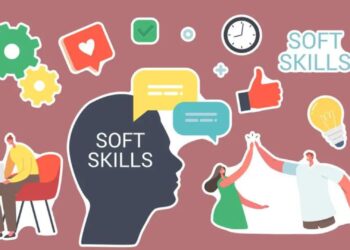- Travel & Tourism


Top 6 Honeymoon Destinations for Newlyweds Seeking Romance

Top 10 Dreamy Wedding Destinations for a Romantic Celebration

Crafting Careers: Soft Skills Employers are looking for in 2024

Global Hotel Alliance Unveils Top Travel Destinations for 2024

Top 5 Heavenly Hotel Pools: Dive into Luxury and Discover Exquisite Aquatic Paradises

Experience Luxury and Innovation at the Radisson Blu Hotel at Porsche Design Tower Stuttgart
Atmosphere poised to transform india’s hospitality landscape with expansive growth plans.

5 Best Pet-Friendly Hotels in the USA

Japanese Soy Sauce Pioneer Chiba Shoyu Makes India Its Next Destination

Wedding Wonders: 10 Amazing Destination Wedding Countries for 2023

The Role of Diversity in the Hospitality Industry : 5 Amazing Key Takeaways!

Future Growth Potential of the Hospitality Industry

The Rise of Home-Sharing Accommodations

How Marriott’s Mobile App Is A Customer Relationship Management System

Hospitality Management Degrees: What Can They Do For Me?

How Accor Is Capturing the Leisure Travel Moment for Future Growth

Pyramid Global Hospitality and University of Virginia Breaks Ground on new Hotel and Conference Center in Charlottesville

The Annual Hotel Conference: Hoteliers Adapt, No Longer To Survive But To Thrive
- HospitalityTech
The ABCs of Hospitality Skills and Knowledge: Elevate Your Start
In the dynamic realm of hospitality, mastering essential skills and acquiring hospitality Skills and Knowledge are the keys to success. From the warm welcome at the front desk to the meticulous details behind the scenes, every aspect contributes to creating memorable experiences for guests. Whether you’re taking your first steps into the industry or looking to refine your expertise, this guide is designed to be your friendly companion on this journey.
This beginner-friendly guide breaks down the complexities of hospitality into easy-to-follow chapters, each corresponding to a letter of the alphabet. We’ll explore the basics of customer service, delve into the intricacies of effective communication, and unravel the secrets of delivering exceptional guest experiences. Get ready to embark on a learning adventure that combines practical insights with a touch of fun, making your entry into the world of hospitality an engaging and rewarding experience.
RELATED POSTS
So, whether you’re a budding hotelier, aspiring event planner, or someone simply curious about the art of hospitality, let’s begin our journey through the ABCs of Hospitality Skills and Knowledge!
Understanding the Hospitality Industry
A. overview of the hospitality sector.
The hospitality sector encompasses a vast landscape, ranging from accommodations to food and beverage services, and the dynamic world of tourism. To navigate this terrain successfully, one must delve into the industry’s definition, grasp its expansive scope, and comprehend the integral components that shape its multifaceted nature.
- Definition and Scope: At its core, hospitality involves creating positive experiences for guests. Understanding its scope involves recognizing the diverse services offered, such as lodging, dining, and travel-related activities and hospitality skills and knowledge that would be needed.
- Key Components: Accommodation, Food and Beverage, Tourism: Accommodation, with hotels and resorts, forms the cornerstone. Simultaneously, the food and beverage sector adds flavor to the hospitality experience. The intertwined world of tourism further broadens the sector’s horizons, revealing the interconnectedness of these components.
B. Current Trends and Innovations
In the ever-evolving hospitality landscape, staying attuned to current trends is crucial for success.
- Technology Integration: The infusion of technology into hospitality operations is transforming guest experiences. From online reservations to digital check-ins, technology is streamlining processes and enhancing customer interactions.
- Sustainability Practices: As environmental consciousness grows, sustainable practices in hospitality are becoming increasingly important. From eco-friendly initiatives to reducing carbon footprints, embracing sustainability aligns with the industry’s evolving ethos.
Identifying Key Hospitality Skills
A. interpersonal skills.
- Communication: Mastering effective communication is the cornerstone of successful hospitality. Whether interacting with guests or collaborating with colleagues, clear and empathetic communication fosters positive relationships.
- Empathy: The ability to understand and connect with the emotions of guests is a powerful skill. Empathy creates a welcoming atmosphere, contributing to the overall guest experience.
- Teamwork: In the collaborative environment of hospitality, teamwork is fundamental. The ability to work seamlessly with colleagues ensures smooth operations and enhances guest satisfaction.
B. Customer Service Excellence
- Anticipating Needs: Going beyond expectations and anticipating guest needs contributes to exceptional customer service. This proactive approach creates a personalized and memorable experience.
- Problem-Solving: Hospitality professionals encounter challenges daily. A strong problem-solving ability ensures that issues are addressed promptly, minimizing disruptions to the guest experience.
- Handling Difficult Situations: Calmly navigating challenging situations is an invaluable skill. Whether addressing guest complaints or managing unexpected issues, maintaining composure is key.
C. Adaptability and Flexibility
- Dealing with Change: The hospitality industry is dynamic, with constant changes in guest preferences, industry trends, and external factors. Being adaptable to change ensures resilience and continued success.
- Multitasking: Juggling various tasks concurrently is a hallmark of hospitality roles. Multitasking efficiently contributes to productivity and the smooth flow of operations.
In the pursuit of developing these hospitality skills and knowledge, individuals set themselves on a trajectory towards not only meeting the demands of the hospitality sector but exceeding them. The journey involves continuous learning, embracing innovation, and cultivating a genuine passion for creating memorable guest experiences. As the hospitality landscape evolves, those equipped with a robust skill set and a deep understanding of industry dynamics are poised to thrive in this exciting and rewarding field.
Educational and Training Opportunities
A. formal education.
- Hospitality Management Programs: Enrolling in dedicated hospitality management programs provides a structured foundation. These programs delve into the core principles of hospitality, management strategies, and industry-specific knowledge.
- Professional Certifications: Complementing formal education, obtaining professional certifications adds a layer of expertise to one’s skill set. Certifications often focus on specialized areas within hospitality, enhancing knowledge and marketability.
B. On-the-Job Training
- Internships: Immersing oneself in real-world scenarios through internships is invaluable. It allows individuals to apply theoretical knowledge in practical settings, gaining firsthand experience and insights into the dynamics of the hospitality industry.
- Cross-Training Programs: Embracing cross-training programs offers a holistic understanding of different roles within the industry. Exposure to various departments enhances adaptability and provides a comprehensive view of hospitality operations.
Building Practical Experience
A. entry-level positions.
- Front Desk Operations: Starting at the front desk provides a firsthand encounter with guest interactions and reservation management. It lays the groundwork for developing strong interpersonal and organizational skills.
- Food and Beverage Service: Entry-level roles in food and beverage service expose individuals to the intricacies of culinary operations, customer service, and the overall dining experience.
B. Networking and Mentorship
- Connecting with Industry Professionals: Actively engaging with professionals in the industry fosters networking opportunities. Building relationships with peers and mentors opens doors to valuable advice, insights, and potential career advancements.
- Seeking Guidance for Career Growth: Establishing mentorship relationships allows individuals to seek guidance from experienced professionals. Mentors provide valuable insights, share industry knowledge, and assist in navigating career progression.
Staying Informed and Adapting
A. attending conferences and seminars.
Participating in industry conferences and seminars provides exposure to emerging trends, networking opportunities, and a platform for learning from industry leaders.
B. Embracing Continuous Learning
The hospitality industry is dynamic, and embracing continuous learning ensures professionals remain adaptable and well-informed. Keeping abreast of industry trends, news, and innovations is essential for staying informed.
Practical Tips for Skill Development
A. seeking feedback.
Actively seeking feedback fosters personal and professional growth. Constructive feedback provides valuable insights for improvement.
B. Taking Initiative
Initiative-taking demonstrates proactiveness. Whether proposing new ideas or volunteering for challenging tasks, taking initiative showcases dedication and enthusiasm.
C. Developing a Strong Work Ethic
A strong work ethic is the cornerstone of success in the hospitality field. Consistent dedication, reliability, and a commitment to excellence contribute to professional advancement.
As the journey in the hospitality field unfolds, individuals equipped with a blend of education, practical experience, and a commitment to continuous improvement are poised for success. This comprehensive approach not only addresses the present demands of the industry but also prepares individuals for the evolving landscape of hospitality and informs us of the key hospitality skills and knowledge. In conclusion, the article emphasizes the importance of ongoing development, encourages the application of acquired knowledge and skills, and reinforces the notion that the pursuit of excellence in the hospitality field is a continuous and rewarding journey.
Related Posts

Enchanting Escapes: Unveiling the Top 6 Honeymoon Havens for Amorous Newlyweds Introduction As newlyweds embark on their journey of love...

Enchanting Escapes: A Guide to the Top 10 Dreamy Wedding Destinations for an Unforgettable Celebration Introduction Dreaming of a perfect...

In the ever-evolving landscape of the job market, the role of artificial intelligence and digitalization has become paramount. As companies...

The Global Hotel Alliance's 2024 survey unveils travelers' top destinations and motivators. Emphasizing rich cultural experiences, natural beauty, and unique...

Welcome to a world where indulgence takes a dip, and relaxation finds its liquid haven. In this exploration of opulence,...

Culinary Delights: 10 Must-Try Restaurants in Paris for Foodies

RECOMMENDED

MOST VIEWED

The impact of technology on the hospitality industry
Sustainability in the hospitality industry: a comprehensive guide, the role of food and beverage in hospitality, 5 most luxury hotels in maldives, how airbnb disrupted the hospitality industry, about the hospitality daily.

We are a media company focused on Hospitality B2B market. We create, aggregate and distribute actionable news, reports, analysis and more for the hospitality industry cohesively.
PRESS RELEASE
- Submit Article/PR
© 2020 THD - A Medianiti Venture .
- Homepage Layout 1
- Homepage Layout 2
Welcome Back!
Login to your account below
Remember Me
Retrieve your password
Please enter your username or email address to reset your password.
The magazine of Glion Institute of Higher Education
- What is tourism and hospitality?

Tourism and hospitality are thriving industries encompassing many sectors, including hotels, restaurants, travel, events, and entertainment.
It’s an exciting and dynamic area, constantly evolving and adapting to changing customer demands and trends.
The tourism and hospitality industry offers a diverse range of career opportunities that cater to various interests, skills, and qualifications, with positions available from entry-level to executive management.
The booming tourism and hospitality industry also offers job security and career growth potential in many hospitality-related occupations.
What is tourism?
Tourism is traveling for leisure, pleasure, or business purposes and visiting various destinations, such as cities, countries, natural attractions, historical sites, and cultural events, to experience new cultures, activities, and environments.
Tourism can take many forms, including domestic, or traveling within your country, and international tourism, or visiting foreign countries.
It can also involve sightseeing, adventure tourism , eco-tourism, cultural tourism, and business tourism, and it’s a huge contributor to the global economy, generating jobs and income in many countries.
It involves many businesses, including airlines, hotels, restaurants, travel agencies, tour operators, and transportation companies.
What is hospitality?
Hospitality includes a range of businesses, such as hotels, restaurants, bars, resorts, cruise ships, theme parks, and other service-oriented businesses that provide accommodations, food, and beverages.
Hospitality is all about creating a welcoming and comfortable environment for guests and meeting their needs.
Quality hospitality means providing excellent customer service, anticipating guests’ needs, and ensuring comfort and satisfaction. The hospitality industry is essential to tourism as both industries often work closely together.
What is the difference between tourism and hospitality?
Hospitality and tourism are both related and separate industries. For instance, airline travel is considered as part of both the tourism and hospitality industries.
Hospitality is a component of the tourism industry, as it provides services and amenities to tourists. However, tourism is a broader industry encompassing various sectors, including transportation, accommodation, and attractions.
Transform your outlook for a successful career as a leader in hospitality management
This inspiring Bachelor’s in hospitality management gives you the knowledge, skills, and practical experience to take charge and run a business

Is tourism and hospitality a good career choice?
So, why work in hospitality and tourism? The tourism and hospitality industry is one of the fastest-growing industries in the world, providing a colossal number of job opportunities.
Between 2021 and 2031, employment in the hospitality and tourism industry is projected to expand faster than any other job sector, creating about 1.3 million new positions .
A tourism and hospitality career can be a highly rewarding choice for anyone who enjoys working with people, has a strong service-oriented mindset, and is looking for a dynamic and exciting career with growth potential.
Growth and job opportunities in tourism and hospitality
Tourism and hospitality offers significant growth and job opportunities worldwide. The industry’s increasing demand for personnel contributes to economic and employment growth, particularly in developing countries.
The industry employs millions globally, from entry-level to high-level management positions, including hotel managers, chefs, tour operators, travel agents, and executives.
It provides diverse opportunities with great career progression and skill development potential.
Career paths in tourism and hospitality

There are many career opportunities in tourism management and hospitality. With a degree in hospitality management, as well as relevant experience, you can pursue satisfying and fulfilling hospitality and tourism careers in these fields.
Hotel manager
Hotel managers oversee hotel operations. They manage staff, supervise customer service, and ensure the facility runs smoothly.
Tour manager
Tour managers organize and lead group tours. They work for tour companies, travel agencies, or independently. Tour managers coordinate a group’s transportation, accommodations, and activities, ensuring the trip runs to schedule.
Restaurant manager
Restaurant managers supervise the daily operations of a restaurant. They manage staff, ensure the kitchen runs smoothly, and monitor customer service.
Resort manager
Resort managers supervise and manage the operations of a resort. From managing staff to overseeing customer service, they ensure the entire operation delivers excellence.
Entertainment manager
Entertainment managers organize and oversee entertainment at venues like hotels or resorts. They book performers, oversee sound and lighting, and ensure guests have a great experience.
Event planner
Event planners organize and coordinate events, such as weddings, conferences, and trade shows. They work for event planning companies, hotels, or independently.
vent planners coordinate all aspects of the event, from the venue to catering and decor.
Travel consultant
Travel consultants help customers plan and book travel arrangements, such as flights, hotels, and rental cars. They work for travel agencies or independently. Travel consultants must know travel destinations and provide superb customer service.
What skills and qualifications are needed for a career in tourism and hospitality?

Tourism and hospitality are rewarding industries with growing job opportunities. Necessary qualifications include excellent skills in communication, customer service, leadership, problem-solving, and organization along with relevant education and training.
Essential skills for success in tourism and hospitality
A career in the tourism and hospitality industry requires a combination of soft and technical skills and relevant qualifications. Here are some of the essential key skills needed for a successful career.
- Communication skills : Effective communication is necessary for the tourism and hospitality industry in dealing with all kinds of people.
- Customer service : Providing excellent customer service is critical to the success of any tourism or hospitality business . This requires patience, empathy, and the ability to meet customers’ needs.
- Flexibility and adaptability : The industry is constantly changing, and employees must be able to adapt to new situations, be flexible with their work schedules, and handle unexpected events.
- Time management : Time management is crucial to ensure guest satisfaction and smooth operations.
- Cultural awareness : Understanding and respecting cultural differences is essential in the tourism and hospitality industry, as you’ll interact with people from different cultures.
- Teamwork : Working collaboratively with colleagues is essential, as employees must work together to ensure guests have a positive experience.
- Problem-solving : Inevitably, problems will arise, and employees must be able to identify, analyze, and resolve them efficiently.
- Technical skills : With the increasing use of technology, employees must possess the necessary technical skills to operate systems, such as booking software, point-of-sale systems, and social media platforms.
Revenue management : Revenue management skills are crucial in effectively managing pricing, inventory, and data analysis to maximize revenue and profitability
Master fundamental hospitality and tourism secrets for a high-flying career at a world-leading hospitality brand
With this Master’s degree, you’ll discover the skills to manage a world-class hospitality and tourism business.

Education and training opportunities in tourism and hospitality
Education and training are vital for a hospitality and tourism career. You can ensure you are prepared for a career in the industry with a Bachelor’s in hospitality management and Master’s in hospitality programs from Glion.
These programs provide a comprehensive understanding of the guest experience, including service delivery and business operations, while developing essential skills such as leadership, communication, and problem-solving. You’ll gain the knowledge and qualifications you need for a successful, dynamic, and rewarding hospitality and tourism career.
Preparing for a career in tourism and hospitality
To prepare for a career in tourism and hospitality management, you should focus on researching the industry and gaining relevant education and training, such as a hospitality degree . For instance, Glion’s programs emphasize guest experience and hospitality management, providing students with an outstanding education that launches them into leading industry roles.
It would help if you also worked on building your communication, customer service, and problem-solving skills while gaining practical experience through internships or part-time jobs in the industry. Meanwhile, attending industry events, job fairs, and conferences, staying up-to-date on industry trends, and networking to establish professional connections will also be extremely valuable.
Finding jobs in tourism and hospitality
To find jobs in tourism and hospitality, candidates can search online job boards, and company career pages, attend career fairs, network with industry professionals, and utilize the services of recruitment agencies. Hospitality and tourism graduates can also leverage valuable alumni networks and industry connections made during internships or industry projects.
Networking and building connections in the industry
Networking and building connections in the hospitality and tourism industry provide opportunities to learn about job openings, meet potential employers, and gain industry insights. It can also help you expand your knowledge and skills, build your personal brand, and establish yourself as a valuable industry professional.
You can start networking by attending industry events, joining professional organizations, connecting with professionals on social media, and through career services at Glion.
Tips for success in tourism and hospitality

Here are tips for career success in the tourism and hospitality industry.
- Gain relevant education and training : Pursue a hospitality or tourism management degree from Glion to gain fundamental knowledge and practical skills.
- Build your network : Attend industry events, connect with colleagues and professionals on LinkedIn, and join relevant associations to build your network and increase your exposure to potential job opportunities.
- Gain practical experience : Look for internships, part-time jobs, or volunteering opportunities to gain practical experience and develop relevant skills.
- Develop your soft skills : Work on essential interpersonal skills like communication, empathy, and problem-solving.
- Stay up-to-date with industry trends : Follow industry news and trends and proactively learn new skills and technologies relevant to tourism and hospitality.
- Be flexible and adaptable : The tourism and hospitality industry constantly evolves, so be open to change and to adapting to new situations and challenges.
- Strive for excellent guest service : Focus on delivering exceptional guest experiences as guest satisfaction is critical for success.
Tourism and hospitality offer many fantastic opportunities to create memorable guest experiences , work in diverse and multicultural environments, and develop transferable skills.
If you’re ready to embark on your career in tourism and hospitality, Glion has world-leading bachelor’s and master’s programs to set you up for success.
Photo credits Main image: Maskot/Maskot via Getty Images

BUSINESS OF LUXURY

LIVING WELL

HOSPITALITY UNCOVERED

Hospitality careers

Hospitality internships


WELCOME TO GLION.
This site uses cookies. Some are used for statistical purposes and others are set up by third party services. By clicking ‘Accept all’, you accept the use of cookies
Privacy Overview
- Value of Culinary Education
- Financing Your Education
- Austin Student Life
- Boulder Student Life
- Culinary & Pastry Careers
- Hospitality Careers
- Health & Wellness Careers
- Food Entrepreneurship
- Success Stories
- World of Food & Drink
- Recipes & Techniques
- Culinary Arts
- Baking & Pastry Arts
- Blog Search
- Financial Aid
- Career Services
- Culinary Arts Programs
- Baking & Pastry Programs
- Food Entrepreneurship Programs
- Plant-Based Programs
- Holistic Nutrition & Wellness Programs
- Hospitality & Restaurant Operations Management
- Online Programs
- Austin Campus
- Boulder Campus
- Tuition & Fees
- Financial Aid Process
- Scholarships & Grants
- Application Process
- Military & Veterans
- High School Students
- International Students
- Student Stories
- Open Houses & Events
- Our Chef Instructors
- Farm to Table ® Experience
- Accreditations
- Vision, Mission & Core Values
- Alumni Profiles
- History & Timeline
- Enthusiast Cooking Classes (not related to degree or diploma programs)
- Student Login
- (855) 955-7555
- Search for:
- Request Information
What Skills Do You Need for a Career in Hospitality and Tourism?
Learn about the important skills you need to start a successful career in the hospitality and tourism industry.

Take the Culinary Career Survey
We’ve compiled a checklist of all of the essential questions into one handy tool: career options, culinary interest surveys, educational opportunities, and more.
Clicking the "Get the Survey Now" button constitutes your express request, and your express written consent, to be contacted by and to receive automated or pre-recorded call, texts, messages and/or emails from via phone, text, and/or emails by Auguste Escoffier School of Culinary Arts at the number(s)/email you provided, regarding furthering your education and enrolling. You understand that these calls , texts, messages and/or emails may be generated using an automated or pre-recorded technology. You are not required to agree to receive automated or pre-recorded calls, texts, messages or emails as a condition of enrolling at Escoffier. You can unsubscribe at any time or request removal of street address, phone number, email address via Escoffier website .
At first glance, the world of hospitality and tourism appears simple.
A hotel, for example, just has to provide clean rooms to guests, along with a few amenities. Nothing complicated about that… right?!
If this truly were all that was needed, every hotel would have five-star customer reviews across the board. And a quick look at the reviews on TripAdvisor or Expedia shows that is not always the case.
So if you want to work in the hospitality and tourism industry, what skills may you need to bring to the table to wow guests and thrive in your career? And how can you begin to acquire these valuable skills?
Let’s Review The Top Tourism And Hospitality Skills
Professionalism & attentive customer service.
The world of hospitality and tourism is all about interpersonal relationships. Different guests will have different expectations of you, and you may need to read their cues to provide proper service.
“Professionalism” is a broad term, but it can include the way you present yourself in dress, posture, and body language, the tone of voice and word choice you use when speaking to guests, and your willingness to go above and beyond for them.
The Hospitality & Restaurant Operations Management program at Auguste Escoffier School of Culinary Arts includes extensive coursework in a number of hospitality areas. While this program is not tourism-specific, many of the principles and lessons can be applied to the wider hospitality world.
In Escoffier’s Professionalism and Service Standards course**, for example, students may start building their professional skills with coursework in guest services, personal standards, and proper hygiene.

Understanding and Respect for Cultural Differences
In hospitality and tourism, you’re likely to meet people from a wide range of cultures and backgrounds. And this means having a healthy sensitivity to these differences to avoid giving offense—or being offended yourself.
Some cultures are more assertive than others, for example. So you may want to understand that a particular guest isn’t being rude —he just comes from a culture that speaks more forcefully. Someone else may come from a culture that discourages complaints. So you’ll have to pay extra attention to ensure that the guest’s needs are being met, since they could be unlikely to speak up if they are unhappy.
In Escoffier’s Business and Professional Communications** course, students may begin to explore these cultural differences and build the skills that can enable them to create a welcoming atmosphere for guests from all backgrounds.
“No two days are ever the same at a hotel! I enjoyed meeting different guests from all around the world and ensuring they had a wonderful stay at my hotel.”* Ashley Godfrey, Escoffier Hospitality & Restaurant Operations Management Instructor
Cost Control and Inventory Management
Depending on your role within the organization, you may be responsible for controlling costs. This could include carefully managing labor expenses if you’re in charge of scheduling, or tracking and managing inventory costs like cleaning supplies, food and beverage operations , and smallwares. These costs can easily eat into the profits of a hospitality business, so keeping them in check is crucial.
Escoffier’s curriculum includes courses in Cost Control and Purchasing**, designed to meet this real-world need. Through carefully purchasing and sales forecasting, a hospitality manager can keep their business well-stocked without overbuying and wasting money.
“Our students are taught the financial aspects of running a successful hospitality operation. Being able to apply this knowledge in the workplace can make them valued employees.”* Maria Davenport, Escoffier Hospitality & Restaurant Operations Management Instructor
Empathy for Your Guests
The foundation of hospitality and tourism is customer service, and the foundation of customer service is empathy. When a guest arrives at their destination after a long day of travel, even a minor issue, like a delay in check-in, doesn’t feel so minor.
By putting yourself in their shoes, you could be better able to offer a helpful solution to the problem. Perhaps you could start by taking their bags and offering them a free cocktail at the bar while they wait, so they can start to relax even though they can’t access their rooms yet.
When customers are unhappy, it’s rarely because they want to make the staff’s life difficult. Something has happened, and it may not have anything to do with your service. Even if it’s not your fault, a little empathy for their situation can go a long way to salvaging the guest’s experience.
A Solution-Oriented Approach to Challenges
A great deal of the work in hospitality and tourism involves problem-solving. The unexpected will pop up, which means the hospitality professional must be able to meet those challenges with quick solutions .
What will you do if the computer reservation system suddenly stops working? What if a guest arrives with a clear confirmation email from your hotel, but their reservation is nowhere to be found in your system? What if your tour company is sold out for the weekend…and then two of your tour guides call in sick?
These problems can happen, and you must be able to come up with solutions that keep the business running and guests happy.
“The Front Desk is the catch-all for complaints at a hotel so managers must be able to problem solve quickly. Students can learn guest service techniques on how to deal with complaints throughout their classes.”* Ashley Godfrey, Escoffier Hospitality & Restaurant Operations Management Instructor
Careful Time Management and Efficient Task Execution
In the hospitality industry, every day is a little different. There may be a set of tasks you’re expected to perform each day, but those can easily be derailed by guest requests and mini emergencies that need your attention.
The key is carefully managing your time and seeking out more efficient ways to get things done. This could include time blocking (grouping similar tasks together to complete them more quickly) or investing in new technology that cuts down on your hands-on time.
In Escoffier’s hospitality degree program, students explore automation technology that may help them to be more efficient in the workplace. With this training, you may find that you can bring major time-saving techniques to your future employer!
Event Planning and Management
These days, events like weddings and corporate retreats have moved out of the hotel ballroom and into a wide variety of venues. So whether you work at a resort, a hotel, an amusement park, a restaurant, a vineyard, or even a state park, events are likely to be part of your professional life.

Regardless of your job title, understanding the logistics behind event planning will allow you to better serve your guests and assist your coworkers. In Escoffier’s Catering and Event Operations course**, students practice the organization and planning necessary to run a successful event. After all, most of the work for catering and events is done long before a single guest arrives!
Teamwork & Communication to Get the Job Done
All hospitality operations thrive on teamwork. From the housekeeping staff to the front desk agents to the general manager , the entire team must pull together consistently to keep the operation running smoothly.
This requires teamwork with a clear chain of command, job expectations, and delegation. No guest should ever hear, “that’s not my job.” They should hear, “oh, let me take care of that for you.” Then the employee can find the right person for the job, or ask for help.

The Confidence To Allow Your Guests to Relax
When guests put themselves in your hands, they want to feel taken care of. If you or your staff answer every question with a halting, bashful response, they won’t feel like you have the situation under control. A confident approach makes guests feel like they can take their hands off the steering wheel. All they need to do is enjoy!
Education can go a long way to helping build your confidence.
With a Hospitality and Restaurant Operations Management degree from Escoffier you may explore many of these topics that can help prepare you for an entry-level management position in the hospitality and tourism industry. You can even complete your degree online with a hands-on industry externship, so you can continue to work full-time while you get your education.
The time to apply is now . Tourism is back in a big way, and those guests need you!
Want to learn more about the hospitality industry? Try these articles next:
- Careers a Hospitality & Restaurant Operations Management Degree Can Prepare You For
- How Do You Learn Hospitality Management Online?
- How to Start a Career in Hospitality Management
*Information may not reflect every student’s experience. Results and outcomes may be based on several factors, such as geographical region or previous experience.
** For specific details, download Escoffier’s course catalogues here .
Latest Articles
Paring knife 101: beginner’s guide to perfect peeling and trimming.
The paring knife is the workhorse of the kitchen. Find out more about its history and how to use it.
Is Culinary School Expensive?
Wondering if culinary school is expensive? Discover affordable options and opportunities to further your culinary education.
A Guide to Paying Back Student Loans
If you’re approaching graduation, you’re probably wondering how to pay back your student loans. Here’s what you need to know, and some helpful strategies!

Subscribe to the King of Chefs Blog
Get the King of Chefs email newsletter delivered to your inbox weekly. You'll get everything you need to know about culinary & pastry careers, food entrepreneurship, financing your culinary education, and more.

We’ve compiled a checklist of all of the essential questions into one handy workbook: Career options, academic plans, financing your education, and more.
Clicking the "Get the Workbook Now" button constitutes your express request, and your express written consent, to be contacted by and to receive automated or pre-recorded call, texts, messages and/or emails from via phone, text, and/or emails by Auguste Escoffier School of Culinary Arts at the number(s)/email you provided, regarding furthering your education and enrolling. You understand that these calls , texts, messages and/or emails may be generated using an automated or pre-recorded technology. You are not required to agree to receive automated or pre-recorded calls, texts, messages or emails as a condition of enrolling at Escoffier. You can unsubscribe at any time or request removal of street address, phone number, email address via Escoffier website .

Why Knowledge Management Matters in the Hospitality Industry

The foundation of the multibillion-dollar hospitality industry—which includes hotels, resorts, travel, tourism, food and drink, attractions, and more—is customer experience . When guests are satisfied with their experience, they are more likely to become repeat customers. And that typically means they will spend more at your establishment, purchase your more expensive products, and refer their friends and family to you. To create that kind of experience, however, every member of your team must provide superior, knowledgeable, and customized service to each guest.
Effective knowledge management in the hospitality industry can help your staff go above and beyond for guests, providing the service and experience they demand—and giving your establishment a competitive advantage .
Learn more about the types and benefits of knowledge management in the hospitality industry below.
What is Knowledge Management and Why Does it Matter?
A knowledge management solution is a system that allows your establishment to store and organize the collective knowledge of your workforce. This enables you to preserve workers’ knowledge even if they eventually leave your organization. In addition, it creates a centralized source of knowledge that employees can access to learn company policies, procedures, best practices, and other relevant job information.
The role of knowledge management in the service industry (which includes hospitality) is to provide employees with easy access to up-to-date, specialized knowledge. This is especially important in hospitality because the success of an establishment depends on providing guests with a great experience. If employees are slow to provide accurate information or solutions, the customer may be less likely to return—and may even demonstrate their dissatisfaction with a negative online review.
With a solid knowledge management framework , you can empower your workforce to respond to guests’ questions and issues with prompt, accurate information. Further, you can gain insight into customer data and trends so you can make fact-based organizational decisions to give your establishment an edge in a highly competitive environment.
Knowledge Categories in the Hospitality Industry
Understanding different types of knowledge can help you determine the best knowledge management strategy for your organization. Hospitality industry knowledge generally falls into the following categories:
- Task-specific knowledge : This encompasses any knowledge that is required to complete a particular task, including specific procedures, actions, or strategies. For example, a staff member uses task-specific knowledge when following the steps to check in a guest, make a reservation, or answer the phone with a standardized greeting. Generally, this information is included in training materials, like videos or handbooks.
- Tacit knowledge : Tacit knowledge is less by-the-book. Rather, it is knowledge that’s gained over time through personal experience and usually difficult to articulate. This could include understanding the phrases and mannerisms to use to de-escalate a frustrated guest. While you may have a documented protocol for this type of situation, it’s usually only through experience that staff members can expertly finesse these difficult interactions.
- Customer-related knowledge : Thanks to technology, hotels and other hospitality-related businesses today have a wealth of insight into customer data. Customer-related knowledge could include historical data (such as frequency and length of stays), demographic data (such as socio-economic status, age, occupation, etc.), and even preferences and behaviors.
- Network-related knowledge : In addition to customer data, your company can also gather knowledge about others in your network, such as competitors, vendors, and partners.
- Market-related knowledge : Market-related knowledge goes one step broader than network-related knowledge. Equipped with market-related knowledge, organizations can better understand the market that it is operating within—such as size, population, culture, and habits. This can inform decisions about what products, services, and experiences to offer.
The Benefits of Knowledge Management in the Hospitality Industry
Every type of knowledge in the hospitality industry can provide value to both the company and its customers. However, to truly see the benefits of that knowledge, organizations must have a system that employees can use to effectively access, document, share, and leverage it. With effective knowledge management in hospitality industry, your organization can realize the following benefits:
Exceptional customer service
To provide superior service to guests, staff members and customer service representatives must be able to quickly access guest information, policies, procedures, and best practices. A knowledge management platform allows all staff to quickly find the information they need to assist guests. The most efficient knowledge sharing solutions include advanced search features which makes it even easier to find the right information at the right time.
Consistent, up-to-date, and accessible knowledge across the organization
Without a knowledge management system, employees may use the company intranet, email archives, or simply word-of-mouth to seek out information. Often, they end up finding outdated information and using it to address guests’ questions or issues, which leads to customer frustrations or dissatisfaction. With a modern knowledge management system, your employees will always know where to find information—and be confident that the knowledge they find is accurate and up to date.
More informed organizational decisions
Knowledge management systems give organizational leaders access to a centralized source of customer insights. Equipped with that knowledge, they can make more informed decisions about how to improve the customer experience. For example, you may determine that your customer base values particular amenities—so to stay competitive, you may decide to offer more of those services.
Insight into new opportunities
With a centralized source of market research, organizational leaders can easily identify new challenges and opportunities in the broader market, empowering you to be innovative in your future plans. These insights could reveal, for example, opportunities to expand to new locations or partner with other local organizations. With this insight, you can strengthen your company and power future business growth.
In the competitive hospitality industry, rising above the competition requires you to empower your staff and leadership with accurate, up-to-date company information and market insights. With a knowledge management platform , you can offer a centralized source of trustworthy information and equip your workforce to provide an exceptional customer experience.
Elevate Hospitality with KM
Discover how Bloomfire’s KM solutions can enhance service in the hospitality industry.

5 Characteristics of Successful Employee Onboarding

The Real Cost of Losing an Employee

10 Benefits of a Knowledge Base

Start working smarter with Bloomfire
See how Bloomfire helps companies find information, create insights, and maximize value of their most important knowledge.

Take a self guided Tour
See Bloomfire in action across several potential configurations. Imagine the potential of your team when they stop searching and start finding critical knowledge.
- Create A Quiz
- Relationship
- Personality
- Harry Potter
- Online Exam
- Entertainment
- Training Maker
- Survey Maker
- Brain Games
- ProProfs.com
Hospitality Quizzes, Questions & Answers
Top trending quizzes.
Popular Topics
Recent quizzes.
Winter is here! Check out the winter wonderlands at these 5 amazing winter destinations in Montana
- Travel Tips
What Are Common Qualifications Needed For Hospitality And Tourism Careers
Published: December 13, 2023
Modified: December 28, 2023
by Audre Sommers
- Plan Your Trip
Introduction:
When it comes to pursuing a career in the hospitality and tourism industry, having the right qualifications is essential. This industry offers a wide range of diverse and rewarding opportunities, from hotel management and event planning to travel consultancy and culinary arts.
To excel in this field, aspiring professionals need to possess a unique blend of skills and knowledge that contribute to providing exceptional experiences for guests and customers. In this article, we will explore the common qualifications needed for hospitality and tourism careers, helping you understand what it takes to succeed in this dynamic industry.
Whether you’re just starting out or looking to advance your existing career, acquiring the right education, skills, and experience will open doors to exciting opportunities in this vibrant sector. From the front desk to the back end of operations, each role in the hospitality and tourism industry requires specific qualifications that contribute to the overall success of the organization.
So, let’s dive in and explore the qualifications needed to thrive in a career in hospitality and tourism.
Education Qualifications:
Education plays a significant role in preparing individuals for successful careers in the hospitality and tourism industry. While there are entry-level positions that may not require formal education, acquiring a relevant degree or certification greatly increases your marketability and job prospects.
For many management and supervisory roles in the industry, a bachelor’s degree is often preferred or required. Pursuing a degree in hospitality management, tourism, hotel administration, or a related field provides a solid foundation of knowledge and skills necessary for success in the industry.
These degree programs cover a wide range of topics, including hospitality operations, marketing, finance, customer service, event management, and leadership. They also often include internships or cooperative education opportunities, allowing students to gain hands-on experience in real-world hospitality settings.
However, it’s essential to note that formal education is not the only path to success in the hospitality and tourism industry. Many individuals have excelled in their careers through practical experience, on-the-job training, and professional development courses.
In addition to degree programs, there are various certificate programs available that focus on specific areas of the industry, such as culinary arts, event planning, hotel administration, and tourism management. These programs provide specialized knowledge and skills and can be a valuable asset in differentiating yourself from other candidates in the job market.
Continuing education is also crucial for professionals in this industry. As trends and technology evolve, ongoing learning is necessary to stay relevant and competitive. Attending workshops, conferences, and industry events and earning certifications in specialized areas demonstrate your commitment to professional growth and enhance your qualifications.
In summary, while formal education is not always mandatory, obtaining a relevant degree or certification greatly enhances your chances of securing higher positions within the hospitality and tourism industry. It provides you with a solid foundation of knowledge and skills, increases your marketability, and opens doors to exciting opportunities in this dynamic field.
Degree Programs in Hospitality and Tourism:
If you are looking to pursue a career in the hospitality and tourism industry, there are various degree programs that can equip you with the necessary knowledge and skills to excel in this field. These programs provide a comprehensive understanding of the industry, covering various aspects such as hospitality management, event planning, tourism marketing, and hotel operations.
Here are some of the common degree programs available in hospitality and tourism:
- Bachelor’s Degree in Hospitality Management: This program focuses on all aspects of hospitality operations, management, and leadership. Students learn about hotel and resort management, food and beverage management, event planning, customer service, marketing, and finance. The curriculum typically includes internships or cooperative education experiences to provide hands-on training.
- Bachelor’s Degree in Tourism Management: In this program, students gain an in-depth understanding of the tourism industry, including travel and destination management, tourism marketing, sustainable tourism practices, and tourism policy. They learn how to develop and promote tourism products and create exceptional experiences for travelers.
- Bachelor’s Degree in Hotel Administration: This program focuses specifically on hotel operations and administration. Students learn about front office management, housekeeping operations, revenue management, hotel marketing, and hospitality law. The curriculum often includes practical training in hotel operations to develop the necessary skills for managing a hotel effectively.
- Bachelor’s Degree in Event Management: This program is designed for individuals interested in planning and organizing events, conferences, and meetings. Students learn about event logistics, budgeting, marketing, vendor management, and creating memorable experiences for attendees. They gain hands-on experience by participating in event planning projects and internships.
These degree programs typically span four years and provide a combination of classroom instruction and practical training. Students learn from industry professionals, gain industry-specific knowledge, develop essential skills, and build a strong professional network.
Moreover, some universities and colleges also offer master’s degree programs in hospitality and tourism for individuals who want to pursue advanced positions in the industry or specialize in a specific area such as international hospitality management or tourism development.
By pursuing a degree program in hospitality and tourism, you acquire a broad range of knowledge and skills that are highly valued by employers in the industry. You develop a deep understanding of the intricacies of the industry, learn how to manage and lead teams effectively, and gain practical experience that prepares you for the challenges of the dynamic hospitality and tourism sector.
Certificate Programs:
In addition to formal degree programs, there are also certificate programs available for individuals interested in pursuing a career in hospitality and tourism. These programs offer specialized training in specific areas of the industry and are designed to enhance your skills and knowledge in a shorter timeframe compared to a full-degree program.
Here are some popular certificate programs in the field of hospitality and tourism:
- Culinary Arts Certificate: This program focuses on the culinary skills and techniques necessary for working in the food and beverage industry. Students learn about food preparation, kitchen operations, menu planning, and nutrition. A culinary arts certificate can lead to a career as a chef, sous chef, or line cook in hotels, restaurants, and other food service establishments.
- Event Planning Certificate: This program provides training on planning and executing events of various scales. Students learn about event logistics, vendor management, budgeting, and marketing. With this certificate, you can pursue a career as an event planner or coordinator, working in hotels, convention centers, or event management companies.
- Hotel and Resort Management Certificate: This program focuses specifically on the operations and management of hotels and resorts. Students gain knowledge about front office operations, housekeeping management, revenue management, and guest services. This certificate can open doors to entry-level management positions in the hospitality industry.
- Tourism and Travel Certificate: This program provides a comprehensive understanding of the tourism industry, including travel agency operations, tour planning, destination marketing, and customer service. Graduates of this certificate program can pursue careers as travel consultants, tourism coordinators, or destination marketing specialists.
These certificate programs are often offered by vocational schools, community colleges, and professional training institutes. They typically have shorter durations ranging from a few months to a year. Certificate programs are a great option for individuals who want to enhance their skills in a specific area of the industry or for those who are looking to enter the industry quickly.
While certificate programs may not carry the same level of recognition as a degree program, they provide valuable industry-specific training and can be a valuable addition to your resume. They demonstrate your commitment to professional development and can set you apart from other candidates in the job market.
It’s important to note that some certificate programs may have prerequisites or require prior experience in the industry. Additionally, some organizations offer professional certifications in specialized areas such as revenue management, event planning, or hotel operations. These certifications require passing an exam and demonstrate your expertise in a specific field.
Overall, certificate programs in hospitality and tourism are a great way to gain targeted knowledge and skills in a shorter timeframe. They provide valuable training and can help you stand out in the competitive job market, allowing you to pursue a successful career in this diverse and dynamic industry.
Language Skills:
In the hospitality and tourism industry, having strong language skills is crucial due to the global nature of the field. As a professional in this industry, you will interact with guests and travelers from different cultures and backgrounds. Being able to communicate effectively in multiple languages can significantly enhance your career opportunities and provide a higher level of service to your customers.
Here are some reasons why language skills are important in the hospitality and tourism industry:
- Enhanced Communication: Speaking the language of your guests allows you to understand their needs and preferences better. This enables you to provide personalized customer service and create a more comfortable and enjoyable experience for them.
- Building Rapport: When you can converse with guests in their native language, it helps foster a connection and build rapport. This creates a positive impression and can lead to higher guest satisfaction and loyalty.
- Breaking Language Barriers: Language barriers can hinder effective communication and lead to misunderstandings. By having language skills, you can bridge these gaps and ensure smooth interactions, improving overall guest experience.
- Upselling and Cross-Selling: Being able to communicate in multiple languages allows you to effectively promote additional services or amenities to guests. You can highlight the features and benefits in a language they understand, increasing the chances of upselling and cross-selling.
- Understanding Cultural Nuances: Language skills often come hand in hand with cultural insights. When you can communicate in a guest’s language, you also gain a deeper understanding of their cultural norms, customs, and preferences. This knowledge allows you to provide a more culturally sensitive and personalized experience.
Language skills can be acquired through formal education, language courses, immersion programs, or self-study. It’s important to focus on learning languages that are most relevant to the destinations or clientele you wish to serve.
While it may not be practical or necessary to become fluent in multiple languages, having a basic understanding of key phrases and greetings can go a long way in creating a positive impression. Additionally, utilizing translation tools and technology can also assist in overcoming language barriers.
Overall, language skills are highly valued in the hospitality and tourism industry. They enable you to provide exceptional service, connect with guests on a deeper level, and navigate cultural differences. By investing time and effort in developing your language abilities, you can enhance your career prospects and excel in this global industry.
Interpersonal Skills:
In the hospitality and tourism industry, having strong interpersonal skills is essential for building meaningful connections with guests and providing exceptional customer service. Interpersonal skills refer to the ability to effectively communicate, relate, and interact with others. These skills play a crucial role in creating positive experiences and fostering long-lasting relationships with guests and colleagues.
Here are some key interpersonal skills that are highly valued in the hospitality and tourism industry:
- Effective Communication: Good communication skills are essential for conveying information clearly, listening attentively, and understanding the needs and expectations of guests. It involves verbal, non-verbal, and written communication skills.
- Empathy and Emotional Intelligence: Being able to understand and empathize with the feelings and perspectives of others is crucial in providing excellent customer service. It involves being attentive, responsive, and demonstrating genuine care for guests’ well-being.
- Teamwork: Collaboration and teamwork are integral to the success of any hospitality and tourism establishment. Being able to work effectively with colleagues from diverse backgrounds, departments, and cultures contributes to a positive work environment and ensures smooth operations.
- Flexibility and Adaptability: The hospitality and tourism industry is fast-paced and dynamic, requiring individuals to be flexible and adaptable. Being able to handle unexpected situations, adapt to changes, and manage multiple tasks simultaneously is essential.
- Conflict Resolution: Dealing with guest complaints or conflicts requires effective problem-solving and conflict resolution skills. Being able to remain calm, listen to concerns, and find mutually beneficial solutions contributes to guest satisfaction and loyalty.
- Positive Attitude: Maintaining a positive and friendly demeanor is crucial in creating a welcoming and enjoyable atmosphere for guests. A positive attitude is infectious and can significantly enhance the overall guest experience.
Developing and honing interpersonal skills can be achieved through practice, training, and self-awareness. Participating in role-playing exercises, attending workshops, and seeking feedback from mentors or supervisors can help enhance these skills.
It’s important to remember that interpersonal skills are not only important in guest interactions but also in building relationships with colleagues and superiors. Strong interpersonal skills contribute to effective teamwork, a positive work environment, and professional growth within the industry.
Overall, possessing strong interpersonal skills is vital in the hospitality and tourism industry. These skills enable you to connect with guests, provide exceptional customer service, and work effectively as part of a team. By continuously developing and refining your interpersonal skills, you can excel in this people-oriented industry and contribute to memorable guest experiences.
Customer Service Skills:
Customer service is at the heart of the hospitality and tourism industry. To succeed in this field, it is essential to possess excellent customer service skills to ensure guest satisfaction and loyalty. Providing exceptional service goes beyond meeting basic needs; it involves creating a memorable experience that exceeds expectations. Here are some key customer service skills that are highly valued:
- Attentiveness: Being attentive and responsive to guest needs and requests is crucial in delivering excellent customer service. Anticipating and addressing their needs promptly shows that you value their experience.
- Empathy: Demonstrating empathy involves understanding and relating to the feelings and experiences of guests. It involves listening actively, showing understanding, and being sensitive to their needs and concerns.
- Patience: Maintaining patience and composure, especially in challenging situations, is essential in delivering quality customer service. Resolving conflicts calmly and patiently ensures that guests feel supported and valued.
- Problem Solving: Being able to identify and resolve guest issues efficiently is crucial in providing excellent customer service. Having strong problem-solving skills allows you to find creative solutions and turn negative experiences into positive ones.
- Product Knowledge: Being knowledgeable about the products, services, and amenities of your establishment allows you to provide accurate information and recommendations to guests. This helps in meeting their specific needs and enhancing their overall experience.
- Professionalism: Maintaining a professional demeanor and appearance instills confidence in guests and reflects positively on the establishment. It involves being reliable, punctual, and respectful in all interactions.
- Positive Language and Tone: Using positive and friendly language, as well as an upbeat tone, creates a welcoming atmosphere and helps in building rapport with guests. It conveys warmth, friendliness, and a willingness to assist.
- Time Management: Being efficient in managing time ensures that guests receive prompt and timely service. It involves prioritizing tasks, staying organized, and balancing multiple responsibilities effectively.
- Adaptability: Being adaptable to different guest preferences, cultural expectations, and changing circumstances is crucial in delivering personalized customer service. It involves tailoring your approach and communication style to best serve each individual guest.
Developing and honing customer service skills can be achieved through training, practice, and continuous self-improvement. Taking advantage of customer service workshops, role-playing exercises, and seeking feedback from guests and supervisors can help enhance these skills.
Remember, exceptional customer service is the key to guest satisfaction, repeat business, and positive word-of-mouth. By consistently demonstrating exceptional customer service skills, you contribute to creating unforgettable experiences and building a strong reputation in the hospitality and tourism industry.
Problem-Solving Skills:
In the fast-paced environment of the hospitality and tourism industry, problem-solving skills are crucial for addressing challenges and ensuring smooth operations. As a professional in this field, you will encounter various issues that require quick thinking, resourcefulness, and effective decision-making. Here are some key aspects of problem-solving skills that are highly valued:
- Analytical Thinking: In problem-solving, analytical thinking is essential for gathering and analyzing information, identifying patterns, and understanding the root cause of issues. It involves breaking down complex problems into manageable components to find viable solutions.
- Creativity: Coming up with innovative and creative solutions is important in the dynamic hospitality and tourism industry. Being able to think outside the box, consider alternative perspectives, and generate novel ideas improves the problem-solving process and leads to improved guest experiences.
- Resourcefulness: Resourcefulness involves utilizing available resources effectively to solve problems. This includes leveraging technology, collaborating with team members, and thinking creatively to find solutions within time and budget constraints.
- Decision-Making: Making sound decisions in a timely manner is crucial when faced with problems. This skill involves evaluating available options, considering potential consequences, and selecting the most appropriate course of action. It may require prioritizing conflicting objectives and embracing calculated risks.
- Collaboration: Collaboration with team members and stakeholders is often necessary in problem-solving. This involves seeking input from others, actively listening to their perspectives, and working together to find the best solution. Strong collaboration fosters a supportive and innovative work environment.
- Adaptability: The ability to adapt and adjust strategies or approaches is essential when solving problems in the hospitality and tourism industry. Flexibility allows for quick responses to changing circumstances, unexpected events, and evolving guest needs.
- Communication: Effective communication is crucial in problem-solving, as it allows for clear articulation of issues, sharing of ideas, and collaboration with others. Being able to convey information clearly, actively listen, and convey solutions to stakeholders is vital.
Cultivating problem-solving skills can be achieved through experience, training, and continuous learning. Actively seeking opportunities to solve problems, participating in workshops or seminars, and seeking feedback from colleagues or mentors can all contribute to skill development.
Problem-solving skills are highly valued in the hospitality and tourism industry, as they contribute to the effective and efficient resolution of issues. By honing these skills, you become a valuable asset to your organization, ensuring exceptional guest experiences and smooth operations.
Leadership Skills:
In the hospitality and tourism industry, strong leadership skills are essential for managing teams, driving organizational success, and creating a positive work environment. Effective leaders inspire and motivate others, provide guidance and direction, and foster a culture of excellence. Here are some key leadership skills that are highly valued:
- Communication: Effective communication is foundational to leadership. It involves clearly conveying expectations, providing feedback and guidance, and listening to the needs of team members. Strong communication skills foster trust, collaboration, and open lines of communication.
- Decision-Making: Leaders are responsible for making informed decisions that drive the success of the organization. This skill involves gathering relevant information, analyzing potential outcomes, and selecting the best course of action. Effective decision-making contributes to organizational growth and employee engagement.
- Empathy and Emotional Intelligence: Leaders who demonstrate empathy and emotional intelligence are better able to understand and connect with their team members. They recognize and value their emotions and perspectives, fostering a positive work environment and building strong relationships based on trust and mutual respect.
- Strategic Thinking: Leaders must have the ability to think strategically, seeing the bigger picture and planning for the long-term success of the organization. This skill involves analyzing market trends, identifying growth opportunities, and adapting to changing industry dynamics.
- Delegation: Effective leaders understand the importance of delegation. They trust their team members and assign tasks appropriately, empowering individuals to take ownership and develop their skills. Delegation allows leaders to focus on higher-level responsibilities and ensures the efficient completion of tasks.
- Conflict Resolution: Leaders need to be skilled in resolving conflicts and managing issues within the workplace. This involves actively listening to all parties, mediating disagreements, and finding mutually beneficial solutions. Strong conflict resolution skills foster a harmonious work environment and promote collaboration.
- Mentoring and Coaching: Good leaders invest in the development and growth of their team members. They provide guidance, offer constructive feedback, and create opportunities for learning and development. Mentoring and coaching foster employee engagement and professional growth.
- Adaptability: The hospitality and tourism industry is fast-paced and constantly evolving. Leaders need to be adaptable, embracing change, and effectively leading their teams through transitions. This involves being open-minded, flexible, and resilient.
Developing leadership skills requires continuous learning and self-improvement. Opportunities for growth include attending leadership development programs, seeking feedback from mentors or supervisors, and taking on leadership responsibilities within your organization.
Effective leaders are instrumental in driving success and creating a positive work culture within the hospitality and tourism industry. By honing leadership skills, you can inspire and motivate your team, drive organizational growth, and shape the future of your organization.
Technical Skills:
In addition to the interpersonal and leadership skills required in the hospitality and tourism industry, having relevant technical skills is crucial for success in this field. These technical skills are specific to the various roles within the industry and contribute to the efficient operation of hospitality establishments. Here are some key technical skills that are highly valued:
- Computer Proficiency: Basic computer skills are essential for most positions in the industry. Familiarity with word processing, spreadsheet, and presentation software is crucial for administrative tasks, data analysis, and communication.
- Property Management Systems (PMS): PMS software is used for managing hotel reservations, guest services, room inventory, and financial transactions. Proficiency in using PMS software is important for front desk staff, reservation agents, and hotel managers.
- Point of Sale (POS) Systems: POS systems are used in restaurants, bars, and cafes to process orders, track sales, and manage inventory. Understanding and using POS systems effectively is important for food and beverage staff.
- Food Safety and Hygiene: Knowledge of food safety regulations, proper food handling, and hygiene practices is crucial for those working in the culinary and food service industry. This ensures the delivery of safe and high-quality food to guests.
- Event Planning Software: Event planners often utilize specialized software for managing event logistics, registration, and attendee management. Proficiency in event planning software can streamline processes and enhance efficiency in event management.
- Language Skills: As mentioned earlier, language skills play a significant role in providing excellent customer service. Proficiency in multiple languages allows for better communication with guests from different regions and cultural backgrounds.
- Accounting and Financial Management: Understanding financial management, budgeting, and basic accounting principles is important for individuals responsible for managing finances within hospitality establishments. This includes tracking expenses, managing revenue, and analyzing financial statements.
- Knowledge of Travel and Tourism Industry: Having a solid understanding of the travel and tourism industry, including popular destinations, travel trends, and transportation options, is important for travel consultants and tour guides.
- Technical skills in specific areas: Depending on the role, specific technical skills may be required. These can include culinary techniques, mixology skills, audiovisual equipment operation, spa therapy techniques, or knowledge of sales and marketing tools.
Developing technical skills can be achieved through formal education, on-the-job training, attending workshops or specialized courses, and keeping up with industry trends and advancements. Employers often provide training and may require certification in specific technical areas.
Having relevant technical skills enhances your job prospects and productivity within the hospitality and tourism industry. It allows you to effectively carry out specific tasks, adapt to technological advancements, and contribute to the overall efficiency and success of your organization.
Conclusion:
The hospitality and tourism industry offers a range of exciting and rewarding career opportunities. To thrive in this dynamic field, individuals must possess the right qualifications and skills. Throughout this article, we have explored the common qualifications needed for hospitality and tourism careers.
Education qualifications, such as degree programs and certificate courses, provide a strong foundation of industry-specific knowledge and skills. These programs cover various aspects of the industry, including hospitality management, tourism marketing, event planning, and hotel operations.
Language skills, including multilingual proficiency, enhance communication and facilitate meaningful connections with guests from diverse backgrounds. Interpersonal skills contribute to fostering positive relationships and ensuring exceptional customer service, while problem-solving skills enable professionals to navigate challenges and find effective solutions.
Leadership skills are vital for managing teams, driving organizational success, and creating a positive work environment. Additionally, possessing relevant technical skills, such as computer proficiency, knowledge of property management systems, and food safety, contributes to efficient operations in different roles within the industry.
To succeed in the hospitality and tourism industry, individuals should continuously develop and refine these qualifications and skills. This can be achieved through formal education, on-the-job training, professional development programs, and open-mindedness to embrace industry trends.
By possessing the right qualifications and skills, individuals can unlock a world of opportunities in various sectors of the hospitality and tourism industry, such as hotels, resorts, restaurants, event management companies, travel agencies, and more. With dedication, a passion for service, and a commitment to ongoing growth, you can embark on a fulfilling and successful career in this vibrant and ever-evolving industry.

- Privacy Overview
- Strictly Necessary Cookies
This website uses cookies so that we can provide you with the best user experience possible. Cookie information is stored in your browser and performs functions such as recognising you when you return to our website and helping our team to understand which sections of the website you find most interesting and useful.
Strictly Necessary Cookie should be enabled at all times so that we can save your preferences for cookie settings.
If you disable this cookie, we will not be able to save your preferences. This means that every time you visit this website you will need to enable or disable cookies again.
Academia.edu no longer supports Internet Explorer.
To browse Academia.edu and the wider internet faster and more securely, please take a few seconds to upgrade your browser .
Enter the email address you signed up with and we'll email you a reset link.
- We're Hiring!
- Help Center

Knowledge Management in Hospitality and Tourism Industry: A KM Research Perspective

2014, Information and Knowledge Management
Related Papers
Wasantha Dahanayaka
Nowadays, the business landscape is changing rapidly and the competitive environment is no longer predictable. Survival and success depend entirely on the organization's ability to adjust to the dynamics of the business environment by making effective decision-making and proper utilization of skills and knowledge of employees. These are recent developments that represent the recognition of knowledge as a key competitive tool for the hospitality and tourism sector because need to upgrade their customer service to a much higher plane in order to survive in this competitive environment. Tourism, as one of the world's major economic sectors will ultimately be required to adapt to these changes. But, hospitality and tourism industry has been slow in adopting KM approach. Therefore, suggestion if hospitality and tourism sector as an activity-based service sector that information and knowledge are fundamental want to remain competitive in this changing era, the adoption of a knowledge management approach will be required. This paper presents an overview of the relatively new concept of knowledge management and the issues in applying such an approach to a sector such as hospitality and tourism.
IAEME Publication
Knowledge management (KM) has emerged over the last decade to become one of the most debated management concepts, but in the hospitality industry KM has not achieved the same scale of applications and empirical research as in other fields. Hotels can improve their service quality by enhancing employees` knowledge about customer's preferences and the corresponding service procedures. Service quality depends strongly on the ability of hotels to acquire, to develop, to accumulate and to distribute knowledge assets. Despite the popularity of knowledge management in other industries, hotels specific concerns have been hugely neglected in the literature and knowledge management has just rudimentarily been implemented in hotels. Especially hotel chains, which have to deliver an overall quality standard in geographically distributed hotels, can exploit knowledge management's benefits. Nevertheless, the implementation of knowledge management requires considerations. This article describes knowledge management in hotels, presents case-studies and gives strategic advice and structure recommendations for its implementation. An examination of hotels' knowledge management requires theoretical underpinning. Therefore, this article provides reflections about knowledge and analyzes different dimensions of knowledge management in hotels. Further, it presents major influences on strategic and structural aspects of knowledge management in hotels and suggests structures for the implementation of a knowledge management
Athanassios Mihiotis
PurposeIn pursuit of an alternative competitive strategy for tourism's underperformers and particularly for niche markets such as tourist destination islands, this paper aims to introduce a framework that caters to the post‐modern tourist.Design/methodology/approachThrough a pilot study, the framework was introduced to senior hotel managers on the island of Crete. The framework explores how hotel managers can best use their employees’ knowledge in order to increase their market adaptability and develop unique capabilities.FindingsThe results demonstrated that managers scored highly in their ability to leverage knowledge gained from the market, whereas they gave less importance to their employees’ valuable, internal knowledge. In the majority of cases tested, senior managers lacked an overall knowledge strategy. Although the pilot study's findings cannot be generalized, they can help us anticipate the maturity levels of hotel managers towards knowledge management and contribu...
Business and Economic Research
This review highlights the huge opportunity provided by leveraging knowledge management principles across the hotel industry. By way of context, the author has over 20 years of international experience in the hotel industry (at executive level, including managing privately-owned and single hotels, some as part of a medium-sized brand, with others as part of a very large [global] hotel brand). When he transitioned from a hotel company of medium size to one of the largest (about 10 years ago), he observed significant differences in business processes, structure, resources, and culture. Wondering about these differences, he examined them more closely and started to read broadly about strategy, competitive advantages, and capabilities. Gaining a deeper understanding, he realized that the observed differences were related to knowledge management. In his research, many organizations were found to have used knowledge management to extract, recycle, harness, share, and leverage knowledge fo...
Carina Antonia Hallin
Knowledge management (KM) has emerged over the last decade to become one of the most debated management concepts, but in the hospitality industry KM has not achieved the same scale of applications and empirical research as in other fields. This paper presents the first state-of-the-art survey of empirical KM research in the hospitality field. Database searches of the KM concept and related topics yielded 2365 hits, of which only 19 empirical articles were identified. The contents of the articles are discussed in juxtaposition with static versus dynamic perspectives on knowledge. The empirical quality of articles is assessed against relevant theory-of-science criteria. Findings reveal that five empirical contributions offer high research quality, and the remaining studies demonstrate that empirical KM research is limited, inconclusive, low on generalization and testability. It is suggested that future research should offer insight into actual learning dynamics to define what domain-specific knowledge means for hospitality management and employees, to investigate how to store real-time contextual knowledge, investigating employees' versus managers' knowledge abilities in forecasting business change, and to illuminate how knowledge vision and knowledge activities may be aligned.
Academic Journal of Interdisciplinary Studies
ΓΙΑΝΝΗΣ ΡΩΣΣΙΔΗΣ
Birgit Muskat
Journal of Knowledge Management
Purpose-This study aims to explore and synthesize the role of knowledge management (KM) in tourism organizations (including micro, small, medium and large enterprises and destination management organizations). Design/methodology/approach-This study adopts systematic review methods to synthesize the role of KM in tourism from 90 journal articles. Findings-This study identifies the prominent theories adopted to explore the relation and impact of KM in the tourism sector, the geographic distribution of the literature and thorough qualitative synthesis. This study identifies the critical research themes investigated and the outcome of KM applications. Finally, through reviews, this study identifies critical gaps in the literature and offer promising avenues to advance the KM in tourism research. Originality/value-This is one of the few papers that comprehensively review the role of KM in the tourism industry and offer implications.
Revista Brasileira de Pesquisa em Turismo
Leonardo Lincoln Leite de Lacerda
When it comes to knowledge management (KM), one of the ways to classify it is through its processes. When it comes to tourism, it is the sectors that reveal its practical development. At this juncture, this article aims to analyze which are the tourism sectors that are considering KM in their research, as well as which KM processes are most used in tourism studies. To this end, this research is supported by an integrative literature review and follows the guidelines of the PRISMA recommendation. Due to the research protocol established and using the Scopus and Web of Science databases, an initial sample of 376 articles was obtained, of which 107 met the eligibility criteria. The research results are: (1) the most representative sectors are macro tourism and the accommodation services segment; (2) there is an emphasis on knowledge sharing and transfer processes, which are KM concerns also in other areas; (3) the researches highlight tacit knowledge, given its management complexity an...
João Filipe Marques
RELATED PAPERS
Alex Fabian Rey
Joseph Carroll
HAL (Le Centre pour la Communication Scientifique Directe)
sophie bouffier
Víctor Cesar
Juliana Rosa
Social Work Education [Working Title]
Carol Castro
Diana Laura Alba Ramos
Barron Bartholomew
Al-Mada: Jurnal Agama, Sosial, dan Budaya
Mohammad Y U S U F Setyawan
I. Pozzoni, Anti-«manifesto» neon-avanguardista, in I. Pozzoni (a cura di), Dieci anni, Villasanta, Limina Mentis Editore, 2017, ISBN 978-8899433758, I-III.
Ivan Pozzoni
Matthias Goldmann
International Journal of Obesity
Hans Hauner
European Journal of Plant Pathology
Dolores Ortiz
International Journal of Advanced Computer Science and Applications
Salem Belhaj
Hassan Hafeez
Community College Review
Dr. Regina Deil-Amen, Ph.D.
Applied Catalysis A: General
Siegfried Fritzsche
Jurnal Ilmiah Kesehatan Media Husada
SihAgeng Lumadi
Gait & Posture
Jacques Demongeot
RELATED TOPICS
- We're Hiring!
- Help Center
- Find new research papers in:
- Health Sciences
- Earth Sciences
- Cognitive Science
- Mathematics
- Computer Science
- Academia ©2024
Columbia College
Columbia college welcomes 11 new faculty for 2024-2025 academic year, august 15, 2024.
COLUMBIA, S.C., August 15, 2024 – Encouraged by continued increasing enrollment, Columbia College is excited to introduce 11 new faculty in the 2024-2025 academic year. The team in Academic Affairs has worked tirelessly throughout the spring and summer to seek out the best and brightest to “prepare every student personally and professionally for success through liberal arts and professional programs emphasizing service, social justice, and leadership development.”
Columbia College Provost Kristine Barnett shared, “We are constantly seeking opportunities to improve the academic experience for our students. This team of new faculty has the professional expertise to provide new educational experiences, fresh perspective, and passion for their respective fields, and we can’t wait to see the impact they have on our student body.”
The Division of Arts and Humanities welcomes Laurel Steckle Archie, M.F.A., James Sullivan, M.F.A., and Lindsey Carman Williams, Ph.D. The Division of Education welcomes Kaitlyn Evans, M.A., Alexandra Jenkins, Ed.D., Rebecca Raab, Ph.D., Julie Porth Smith, MCD, and Leigh Ann Spell, Ph.D., CCC-SLP. Finally, the Division of Health, Mathematics, and Sciences will add Katherine DeVivo, MPH, and Asole TaQue’sa McLeod, Ph.D.
The Division of Business, Leadership, and Communication will add a new Dean, Lisa Assante, Ph.D., who will also serve as a Senior Lecturer. Dr. Assante has over 30 years of vast international experience in higher education, hospitality and tourism management, and the food and beverage industry, most recently serving as Head of Academics and Research and Associate Professor for Al Rayyan International University College in partnership with the University of Derby (ARIU with the University of Derby) in Doha, Qatar. With a bachelor’s degree from The Pennsylvania State University in Hotel, Restaurant and Institutional Management, a Master of Science in Hotel Administration from the University of Nevada, Las Vegas, and a Doctor of Philosophy in Hospitality Administration from Texas Tech University, her academic background speaks for itself, displaying her breadth of knowledge surrounding management at all levels and organizational leadership that will undoubtedly serve the students of the Division well.
Columbia College is thrilled to have assembled such an impressive group of educators to inspire, equip, and lead a new generation of students filled with Koala Pride.

PH ban on Pogos can attract ‘real’ Chinese tourists to PH – expert
M ANILA, Philippines — The ban on all Philippine offshore gaming operators (Pogo) should open doors for talks to ease visa restrictions for Chinese tourists, a tourism and hospitality expert said Wednesday.
On the sidelines of the Hotel Sales and Marketing Association (HSMA) general membership meeting in Manila, Alfred Lay, Leechiu Hotels, Tourism, and Leisure Director, said China remains an important market that the Philippines must strive to recapture in the long run.
“It’s not just the visa but the visa is one of several impediments for the Chinese tourists to come here. They have also stricter currency outgoing capital flows and that’s not only related to the Philippines but also to our neighboring countries,” he told the Philippine News Agency.
READ: Pogo ban effect on tax drive minimal – DOF
“But the more we can remove the barriers, the ease of travel to the Philippines will improve and that’s the overall aim,” he added.
Lay believes the imposition of stricter visa rules on Chinese nationals was made mostly due to concerns that they are using tourist visas “as a way of entering the Philippines to then join the Pogo market.”
“Once the closure of all the Pogos has happened, the government can consider easing visa restrictions for Chinese arrivals, which will put us on par with our Southeast Asian neighbors and allow us to attract more Chinese visitors,” he said.
The Department of Tourism (DOT) earlier disclosed that it will “recalibrate” efforts to boost arrivals from other source markets, including South Korea, the United States and Japan amid the slow return of Chinese tourists.
Lay agreed that recalibration is a good move and suggests the Philippines to look at source markets it can grow quickly such as the Middle East, Hong Kong, Singapore, Vietnam, Malaysia, and India.
“But in the long-term, China has to be a significant part of our tourism picture,” he said.
READ: Bad for relations: China presses PH to ban Pogos
“Our top source markets are always where you should look because there’s already an existing link between those countries and it’s easier to grow an existing base than to start new source markets,” he added.
While these would not fully compensate for the Chinese tourists in the short term, Lay said a “diversified mix” of markets is still a huge advantage for the Philippines.
“An interesting market would be the Middle East because we already have existing flights. All the major Middle Eastern carriers fly into Clark, Ninoy Aquino International Airport, Cebu, and even Davao,” he said.
“They’re familiar with our people — so the connection is there. If we can promote to those markets, they can find reasons and interests to come to the Philippines,” he added.
The DOT targets to reach 7.7 million in arrivals by the end of 2024. Since the start of the year, the Philippines has so far recorded at least 3.55 million in international visitors.

- Hospitality Industry
Skills-based talent management in hospitality and tourism

March 20, 2024 •
8 min reading
Hospitality businesses rely on their employees to provide excellent service and maintain the brand image. This front-line reality makes talent management a crucial activity for any hospitality organization. As the saying goes: "The people make the place."
Recent studies have proven that employees can be a major source of competitive advantage, but they must be managed effectively and considerately to reap those benefits. The industry presents unique challenges for employees and managers, such as long working hours, stressful customer interactions, seasonal rushes, and working on weekends. On top of these challenges, the industry is currently facing a talent shortage, making talent management even more critical.
In this article, we’ll explore the benefits of a skill-based talent management approach and provide suggestions for how to implement it in your organization. First, we’ll begin with a key question for this challenging industry:
How can hospitality organizations put their employees at the center?
The first step requires a shift of mindset, getting rid of the notions that put jobs first and treat employees like pegs that fit into a hole. This traditional way of employment is strongly anchored in the hospitality industry, and it looks like this: business advertises a job, hires the individual who best suits that job based on their education, experience, and resume, and then keeps them limited to their department or area of expertise. There’s no personalization or consideration of the individual’s strengths and needs. While it seems logical and simple to manage talent this way, it’s not the best approach for making employees productive and fulfilled.
Putting employees at the center of talent management in hospitality organizations is an essential component of any successful business strategy. It can help improve employee satisfaction, retention rates, and productivity. One way to achieve this is by creating a culture that values and supports employees. Skills-based employment can contribute to this culture by recognizing transversal skills and providing opportunities for growth and development.
Another way to put employees at the center is by providing the necessary resources and tools to perform their job effectively. Again, skills-based methods can do this by identifying areas for training and offering support to grow transversal skills, thereby diversifying career opportunities. When employees feel empowered and equipped to do their job well, and they see themselves on the road to a successful career, they are more likely to feel valued and engaged in their work.
Finally, offering competitive compensation and benefits, along with promoting work-life balance, and fostering a positive and inclusive work environment are all key components of putting employees at the center. Now, let’s look at some skills-based talent management methods.
The Job deconstruction approach
Recently, the idea of job deconstruction has been presented as the future of work, with studies and specialists discussing the benefits for employees and organizations alike. In layman’s terms, job deconstruction is a skills-based approach that requires breaking down jobs into tasks and projects and pairing those with the skills, knowledge, and strengths of employees.
This skills-based method gained traction during the COVID pandemic with the rise of the gig economy and companies such as Google have applied it to create an internal marketplace where people can pick up extra projects and tasks to expand their knowledge and roles.
While this approach may sound appealing, it can have the opposite effect. A recent review by academic scholars shows that it can also have negative impacts when workers feel like they are reduced to the sum of their parts, and not valued for their whole self and unique qualities. Furthermore, in hospitality, the idea of deconstructing jobs is hard to fathom because of the specialized knowledge and skills that are required to perform certain roles.
Let’s take a closer look at how this method may be applied in hospitality organizations.
Structuring hospitality jobs with a skills-based approach
Work in hospitality is traditionally designed around jobs: a position is defined by a title, where it stands in the organizational chart, who it reports to, the responsibilities and tasks, the qualifications that are required to be in that position, and so on.
This approach works well in situations where work is clearly defined, and the profiles of employees are quite standardized. While this rigor is required to ensure service quality, it can create environments marked by routine, lack of flexibility, and lack of mobility, which are unattractive job qualities for most of today’s job seekers and workers.
A skills-based approach to deconstructing hospitality jobs would mean focusing on the fit between individuals’ skills and more specific elements such as tasks or projects, and according to scholars , it starts with these questions:
- What are the tasks and projects that need to be carried out?
- What knowledge, skills, abilities, and other attributes are required to do them?
This deconstruction serves organizational agility, but it can also be very helpful when it comes to employer branding and employee experience. Another aspect of this approach is skills-based hiring, which means hiring talent based on a candidate’s skills and expertise over their degree, resume, or connections.

How can a skills-based approach improve employee experience?
The skills-based approach is based on the principle of capitalizing on people’s skills and their contribution to the organization. By definition, this gives employees:
- A deeper sense of ownership of their work as their unique skill sets are appreciated and valued by the organization
- The promise of work that is more catered to the skills that they actually possess and can thus lead to higher engagement and commitment.
- A chance to craft one’s career by developing specific skills to advance through internal upward mobility
- Empowerment when it comes to developing a career path beyond the traditional corporate ladder.
Shifting to a skills-based approach to talent management is not an easy task as it requires going outside of the traditional frameworks for hiring, managing, and promoting people within an organization. Here are the steps that make the process clearer:
Do a skills inventory and mapping exercise
First, it’s important to conduct a thorough analysis of the current skills in the organization based on these questions:
- What are the key tasks in the organization?
- What are the skills required to carry those tasks out?
- What are the skills that our workforce possesses?
To create such an inventory, it is important to rely on a consistent taxonomy of skills that encompasses the reality of all the skills that the organization requires. The taxonomy needs to be precise enough to account for all the specific skills of the organization, but also flexible enough to allow for the identification of transversal skills, and to consider the evolution of skills over time.
Start using skill assessments
In their 2023 State of Skills-Based Hiring report , Test Gorilla found that skills-based hiring is particularly popular in remote and hybrid working environments. But skills-based hiring is quickly gaining ground in other areas. 79% of HR professionals claim that candidate scores on skills assessments are equally as or more important than traditional criteria in hiring decisions. They also offer insight into nine types of jobs that work well for skills-based hiring.
9. Types of jobs suitable for skills-based hiring
- High-volume (high turnover) hiring roles
- Technical Roles
- Sales & Marketing
- Entry-level hires
- Senior appointments
- Retail roles
- Service roles
- Administrative roles
- Manufacturing roles
Test Gorilla, 2024
3. Work with subject experts & existing frameworks
Building a skills-based talent management program isn’t easy. For example, creating a taxonomy of skills from scratch represents a colossal work, which is why it might be more cost-effective for organizations to rely on existing and dedicated taxonomies of skills, such as this example from ESCO . Such an approach can help map out existing skills, while the level of detail of global taxonomies might make skill identification more complex.
Additionally, since there is (to our knowledge) no hospitality-specific skills taxonomy, an industry-specific approach to skills might help organizations map out their transversal skills and core skills. Identifying these transversal skills and the employees who possess them can be a source of competitive advantage, be it in terms of service consistency and flexibility.
The bottom line: Skills-based talent management works
Embracing a skills-based approach to talent management based on identifying and developing transversal skills allows for more flexibility in terms of staffing. With this approach, more people are available to carry out tasks, and more people can benefit from opportunities to try out new things and to further develop themselves and their contribution to the organization.
Research shows that this approach helps organizations gain flexibility and deal with the talent shortage faced by the hospitality sector. First, it can help develop a workforce that possesses strong transversal skills, helping with staffing and workforce planning. Second, it can help attract and retain talent by offering more work variety and new opportunities. Finally, adopting a skills-based approach is a great opportunity for organizations to enhance their core hospitality skills.

Assistant Professor at EHL Hospitality Business School

Associate Professor at EHL Hospitality Business School
Keep reading

Crafting a unique employer brand for today's talent market
Aug 14, 2024

Crafting your future: The world's top hospitality management degrees
Aug 12, 2024

Why recruiting tech talent in hospitality is a challenging task
Aug 05, 2024
This is a title
This is a text
More articles
- Bachelor Degree in Hospitality
- Pre-University Courses
- Master’s Degrees & MBA Programs
- Executive Education
- Online Courses
- Swiss Professional Diplomas
- Culinary Certificates & Courses
- Fees & Scholarships
- Bachelor in Hospitality Admissions
- EHL Campus Lausanne
- EHL Campus (Singapore)
- EHL Campus Passugg
- Host an Event at EHL
- Contact our program advisors
- Join our Open Days
- Meet EHL Representatives Worldwide
- Chat with our students
- Why Study Hospitality?
- Careers in Hospitality
- Awards & Rankings
- EHL Network of Excellence
- EHL Hospitality Business School
- Route de Berne 301 1000 Lausanne 25 Switzerland
- Accreditations & Memberships
- Privacy Policy
- Legal Terms
© 2024 EHL Holding SA, Switzerland. All rights reserved.

IMAGES
COMMENTS
Find out which skills are necessary to be successful in the hospitality and tourism industry, ranging from essential practical to soft skills.
Hospitality management involves all the tasks and aspects associated with managing a hospitality business. These businesses focus on welcoming customers and providing them with pleasant experiences, whether through dining, lodging, events, entertainment, or travel.
Use our guide to learn what hospitality management is, including educational pathways to start careers in this field.
Learn about top hospitality skills, how to develop them and how to highlight your skills when applying for jobs.
Have you ever wondered what soft skills are needed in hospitality and tourism? Discover the top 10 hospitality soft skills listed by our experts.
In the dynamic realm of hospitality, mastering essential skills and acquiring hospitality Skills and Knowledge are the keys to success.
Careers, Skills, Salaries, and More. Hospitality management involves all the tasks and aspects of managing a hospitality business. These businesses focus on welcoming customers and providing them with pleasant experiences through dining, lodging, events, entertainment, or travel. Take a closer look at how hospitality management is different ...
Hospitality management is a broad field that involves overseeing the day-to-day administrative, operational, and commercial activities of businesses in the hospitality industry. As opposed to the more narrowly focused "hotel management", hospitality management is an umbrella term that covers various industries such as food and beverage ...
The concepts of tourism and hospitality will allow us to address the relevance they have on the economy, culture and environment worldwide. You will learn the importance of incorporating good practices in tourism and hospitality; respecting cultural diversity, the environment, tangible and intangible heritage, and thus generate a conscious and ...
The hospitality industry is a large subsection within the service industry and is comprised of four main areas: Food & beverage, travel & tourism, lodging, and recreation. As examples, the F&B category includes restaurants, bars, and food trucks; travel & tourism covers different forms of transportation and travel agencies; lodging varies from hotel resorts to hostels; recreation refers to ...
Hospitality and tourism are both related and separate industries. For instance, airline travel is considered as part of both the tourism and hospitality industries. Hospitality is a component of the tourism industry, as it provides services and amenities to tourists. However, tourism is a broader industry encompassing various sectors, including ...
Learn about the important skills you need to start a successful career in the hospitality and tourism industry.
Want to play a leading role in the global hospitality industry? Get up to speed with key hospitality trends, and the skills needed to keep pace.
Effective knowledge management in the hospitality industry can help your staff go above and beyond for guests, providing the service and experience they demand—and giving your establishment a competitive advantage. Learn more about the types and benefits of knowledge management in the hospitality industry below.
Test your knowledge of key concepts such as guest relations, concierge services, and quality assurance. Explore the importance of effective communication, cultural sensitivity, and problem-solving skills in delivering exceptional hospitality experiences. Hospitality is a people-centric field, and our quizzes reflect this humanistic approach.
The hospitality industry spans across service industry sectors such as restaurants, hotels and the broader tourism industry (e.g. cruise ships). As one of the largest job creators and economic contributors, it is important for both customers and workers to understand the ins and outs of this dynamic industry.
Pursuing a degree in hospitality management, tourism, hotel administration, or a related field provides a solid foundation of knowledge and skills necessary for success in the industry. These degree programs cover a wide range of topics, including hospitality operations, marketing, finance, customer service, event management, and leadership.
But, hospitality and tourism industry has been slow in adopting KM approach. Therefore, suggestion if hospitality and tourism sector as an activity-based service sector that information and knowledge are fundamental want to remain competitive in this changing era, the adoption of a knowledge management approach will be required.
Get 20+ essential hospitality interview questions to help you find candidates with the right skills for food service, event planning, and more. ... Travel and Tourism: Cultural awareness, communication skills, and a love for travel are essential traits in this area of hospitality. It's also a plus if someone is well-traveled in the regions ...
ITB Asia announces 2024 conference theme as "Innovating for Tomorrow: Strengthening Future Resilience in Travel and Tourism". The conference spans over 3-days from 23 - 25 October at the ...
COLUMBIA, S.C., August 15, 2024 - Encouraged by continued increasing enrollment, Columbia College is excited to introduce 11 new faculty in the 2024-2025 academic year. The team in Academic Affairs has worked tirelessly throughout the spring and summer to seek out the best and brightest to "prepare every student personally and professionally for success through liberal arts and ...
Domestic tourism is rebounding faster than international tourism. U.S. domestic travel spending, which includes general travel spending and passenger fares, is expected to be $975.6 billion in 2024, 98% of 2019 levels. International travel spending of $153.9 billion is about 83% of 2019 levels. Both are adjusted for inflation, per the USTA.
MANILA, Philippines — The ban on all Philippine offshore gaming operators (Pogo) should open doors for talks to ease visa restrictions for Chinese tourists, a tourism and hospitality expert said ...
The bottom line: Skills-based talent management works. Embracing a skills-based approach to talent management based on identifying and developing transversal skills allows for more flexibility in terms of staffing. With this approach, more people are available to carry out tasks, and more people can benefit from opportunities to try out new ...
The Milano Cortina 2026 hospitality program will be the largest in Olympic and Paralympic Winter Games history, offering more people than ever before the opportunity to enjoy an elevated service ...
North Korea is set to allow tourists back into the country again by the end of the year, after around four years of strict border controls due to the...
Omsk Oblast Tourism: Tripadvisor has 13,841 reviews of Omsk Oblast Hotels, Attractions, and Restaurants making it your best Omsk Oblast resource.
Things to Do in Omsk Oblast, Russia: See Tripadvisor's 13,800 traveler reviews and photos of Omsk Oblast tourist attractions. Find what to do today, this weekend, or in May. We have reviews of the best places to see in Omsk Oblast. Visit top-rated & must-see attractions.
Top Things to Do in Omsk Oblast, Russia: See Tripadvisor's 13,893 traveller reviews and photos of Omsk Oblast tourist attractions. Find what to do today, this weekend, or in August. We have reviews of the best places to see in Omsk Oblast. Visit top-rated & must-see attractions.
Top Things to Do in Omsk, Russia: See Tripadvisor's 13,429 traveller reviews and photos of Omsk tourist attractions. Find what to do today, this weekend, or in August. We have reviews of the best places to see in Omsk. Visit top-rated & must-see attractions.